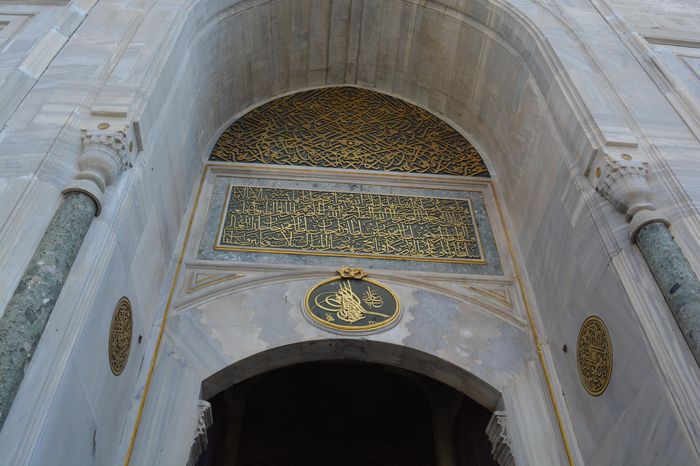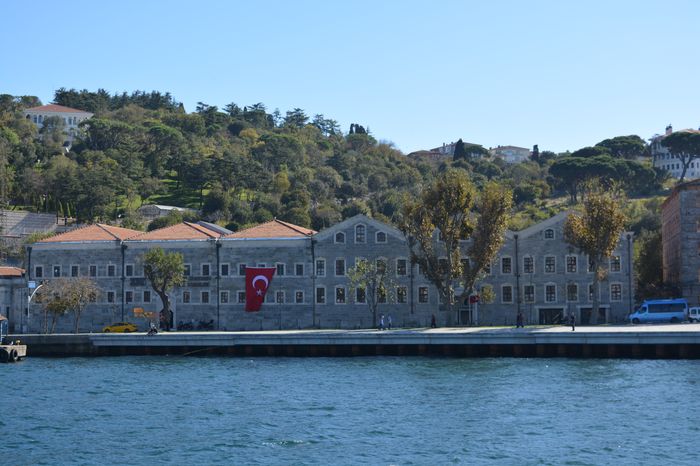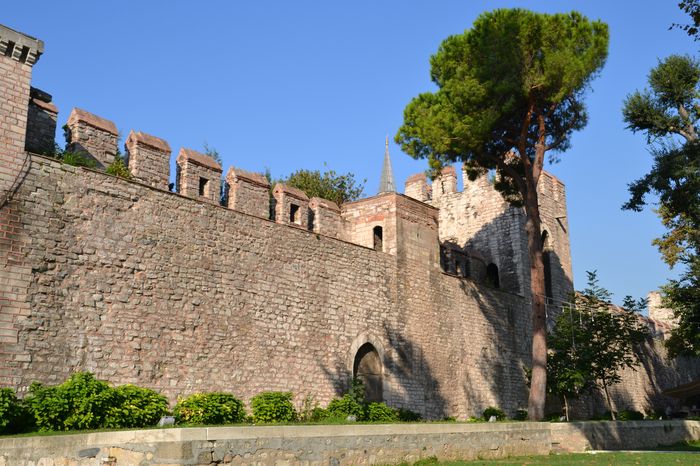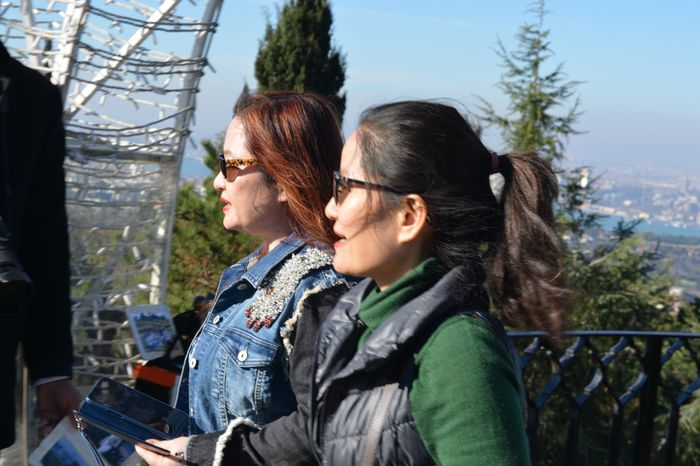He put a bitter and perpetual tax on the sale of bread, which the day laborers, the poor and the infirm could not help buying. From this source he demanded three centenaries a year, with the result that the bakers filled their loaves with shells and dust; for the Emperor had no scruples against profiting meanly from even this unholy adulteration. Those in charge of the markets, turning this trick to their private gain, with ease became very wealthy and reduced the poor to an unexpected famine even in prosperous times; since it was not permitted to bring in grain from other places, but all were forced to eat bread purchased in the city.
One of the municipal aqueducts, which furnished not a small share of the city water, collapsed; but the rulers disregarded the matter and refused to repair it, though the constant crowds who had to use the wells were fairly stifling, and all the baths were shut down.
On the other hand, he threw away great sums of money senselessly on buildings by the seashore and elsewhere, in all the suburbs, as if the palaces in which all the former emperors had been content to dwell were not enough for this pair. So it was not to save money, but to destroy his subjects, that he refused to rebuild the aqueduct; for no one in all history had ever been born among men more eager than Justinian to get hold of money, and then to throw it immediately away again. Through the two things left to them to drink and eat, water and bread, this Emperor injured those who were in the last extremes of poverty; making the one hard to procure at all, and the other too expensive to buy.
The poor in Constantinople
This he did not only to the poor in Constantinople, but to inhabitants elsewhere, as I shall now relate. When Theodoric captured Italy, he permitted the palace guard to remain in Rome, that some trace of the ancient State might be left; and he continued their daily pay. These soldiers were quite numerous, comprising the Silentiarii, the Domestics, and the Student Corps, who were soldiers only in name; their pay was just enough to live on; and Theodoric ordered that this should revert, on their deaths, to their children and families. Among the poor, who lived near the Church of St. Peter the Apostle, he distributed each year three thousand bushels of grain from the public granary; which they continued to receive until the arrival in Italy of Alexander the Scissors.
Read More about Appointed one at Rome






